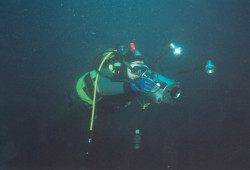European researchers develop tools to understand marine biodiversity and assess the environmental status of our oceans
This project, supported by the European Commission, ends today after four years of activity and a budget of 12 M €, from which 9 have been funded by the 7th Framework Programme of the EU. The research has resulted in innovative tools, developed and validated, which relate theoretical and applied ecology in an integrative way (including remote sensing, models and genomics), in order to advance in the knowledge of the changes produced in marine ecosystems and biodiversity. The team of researchers, coordinated by Angel Borja, PhD in Biology, from AZTI (Spain), has proposed an operational definition of good environmental status and has completed new models relating human activities, pressures, changes in the state, impacts on human welfare and management responses. This includes indicators to assess biodiversity in a harmonized way in the four European regional seas (Baltic, Atlantic, Mediterranean and Black Sea). During this period, the team has analysed the current monitoring network in Europe and has developed free software (DEVOTool), which includes more than 600 indicators used in the EU for the implementation of the Marine Strategy Framework Directive (MSFD). Moreover, DEVOTES has developed and validated 29 indicators, from which 16 are new and 13 have been refined, including all ecosystem components and the biological descriptors of the MSFD. The assessment has been undertaken using descriptors such as alteration of biodiversity, introduction of non-indigenous species, commercial fish, alteration of food-webs, eutrophication and sea-floor integrity. Moreover, the main human activities at sea have been studied, together with the socio-economic factors driving those activities. The research has included also the development of new monitoring methods (e.g. biosensors of early warning pollution, microarrays to detect Harmful Algae Blooms), metabarcoding of many species of microbes, plankton, meio- and macrofauna (available now in GenBank). Among the undertaken tasks the project has developed new monitoring tools using remote sensing, acoustic and genomics, and has proposed new ways to integrate the information provided by them to assess the environmental status of European seas. New software Among the developed tools, we can highlight a new free software, named NEAT (Nested Environmental status Assessment Tool), allowing to assess the health status of marine systems. It has been validated in 10 locations all around Europe. NEAT includes the previous tool DEVOTool, which includes more than 600 indicators used by member states and regional seas conventions. Moreover, through regular updates, and attending the users’ needs, this software includes new applications, allowing the biodiversity assessment on line. In addition to the above results, DEVOTES has published 165 scientific papers, a free downloadable book, 10 scientific sessions have been organized, 21 post-graduate courses, 4 summer schools, near 400 contributions to international conferences and 15 PhD students have been trained.
Countries
Spain



